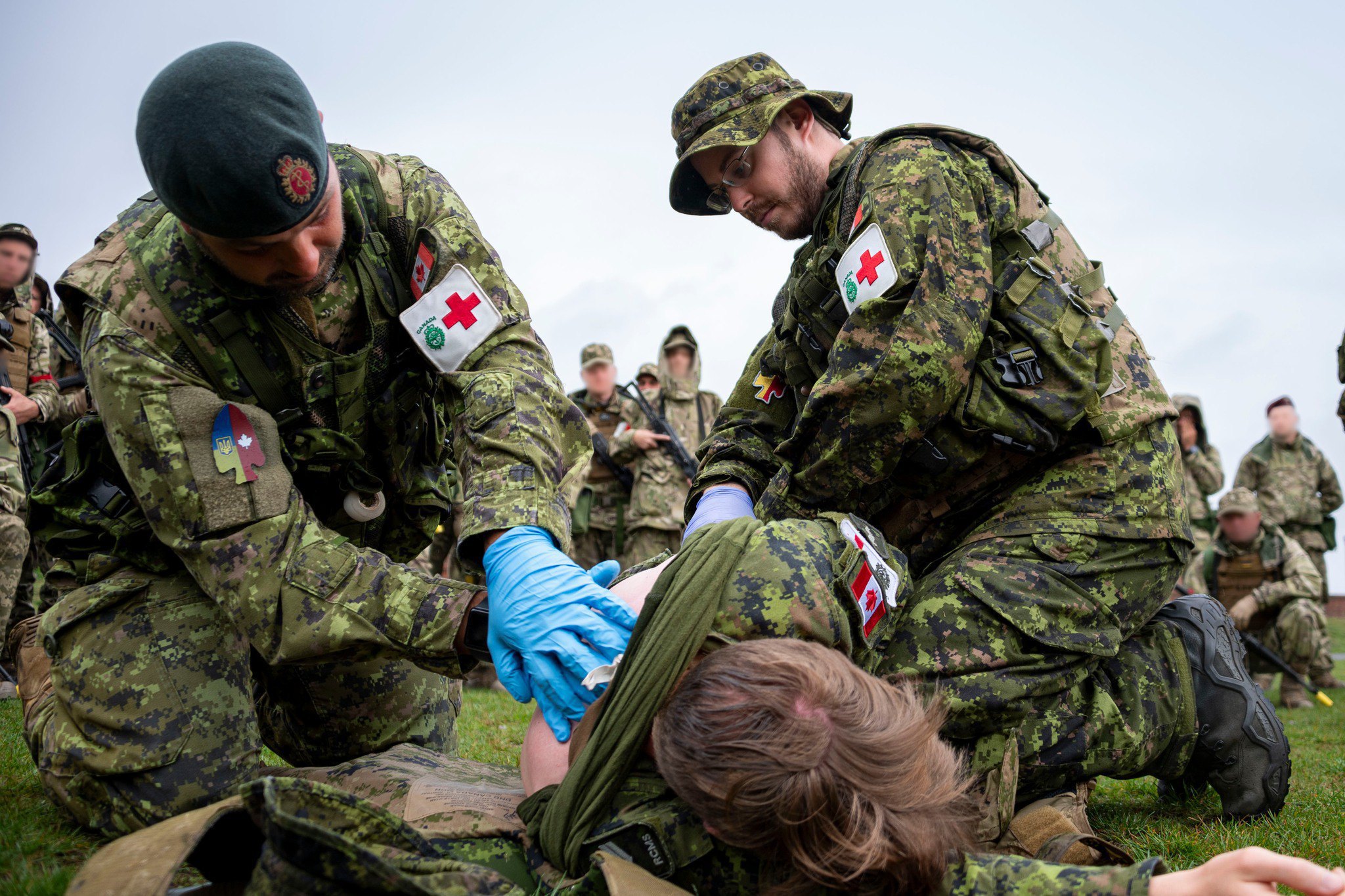‘Trump was looking for fame, love and recognition in Canada, wanted the Liberals to fail because ideologically they are not his people at all, and he got the exact opposite result.’
After listening to Radio Khartiya, I realised that, firstly, you like to mention Trump, and secondly, you are looking for philosophical and metaphysical things in everything that happens. And the Canadian election will satisfy you on both counts.
Serhiy: Let's talk about the election result right away.
Mark Carney will remain the Prime Minister of Canada. He is an interesting man, new to politics, and we can say a few words about him later. What has changed? Three months ago, when Trudeau resigned, it seemed that the Liberals were doomed. Trudeau, when he resigned, said that against the backdrop of Trump's inauguration and Trump's anti-Canadian statements, Canadian politicians needed to unite, his party needed to unite, and he gave way to a new leader.
In three months, we have seen that the Liberals have managed not only to close the gap of 20-25% that was there, but even to take the lead. What is the philosophical meaning of this situation? We remember that Trump suggested that Canada should become the 51st state, called Trudeau ‘governor’ and so on. This rallied Canadians and united the Liberal Party. The Liberals were drowning and sinking, but the stone that Trump threw at Canada raised a wave that carried the Liberals to the shore and allowed them to win.
So, the philosophical lesson is that when someone stabs you in the back or shoots you in the back, maybe by doing so, they are pushing you faster to the finish line and may allow you to get a better result.
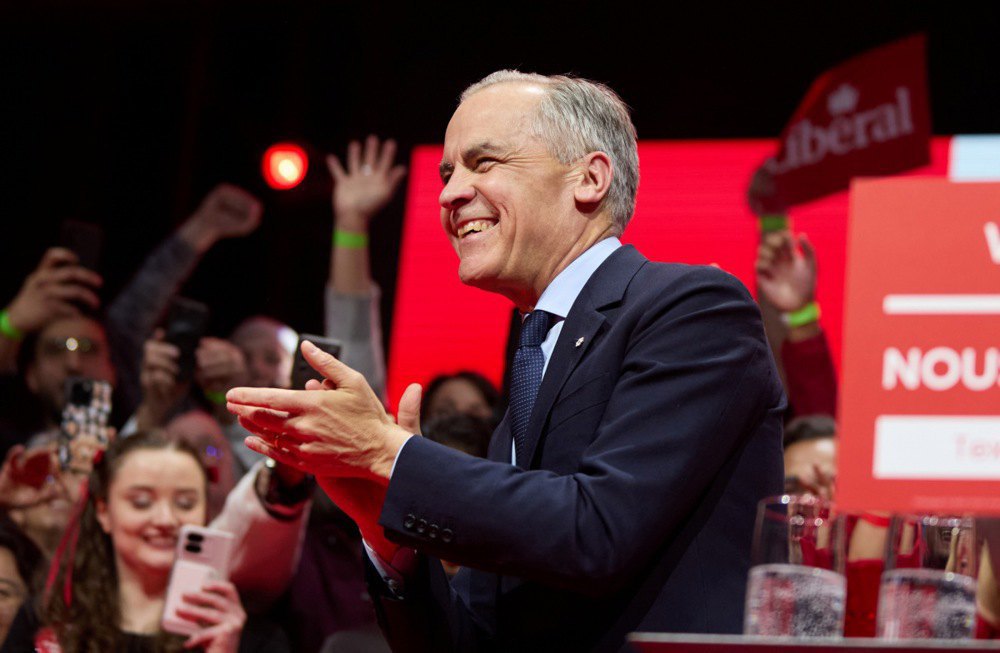
Serhiy: It turns out that we are returning from the Canadian issue to the Trump issue. His actions in his first 100 days have led to the fact that his attempt to be strong, his attempt to achieve results, has turned out to be exactly the opposite. This is the case with the EU, the case with China, the case with Canada, and there are simply huge concerns about his possible negotiations with Russia.
But the practical lesson for us is this: Trump sought fame, love, and recognition in Canada. He wholeheartedly wished for the Liberals' defeat ideologically, they were not his people at all but ended up with the opposite. Canada gave the Liberals another term in office: consolidated, angry, offended, disappointed, and resentful toward Americans — or rather, toward Trump. Things don’t always go the way those who see themselves as the scriptwriters of the universe imagine.
Serhiy: I think that most Ukrainians, for example, do not understand the essence and seriousness of these claims of the Trump administration against Canada. How could this have come about, is there at least some indirect basis for it, or is it just a stunt to attract attention?
I am sure that Canada and America will come to an understanding: one trillion dollars is the volume of trade between the two countries every year. When you have that kind of trade, when you have that kind of powerful trade link between you, it makes you better allies than any talk. But neighbours always have some unresolved trade issues. Trump believed that Canada was selling more to the Americans than the Americans were selling to the Canadians, and he thought that this should be levelled out. I predict that the government that has now come to power, or rather remained in power in Canada, will take a very firm stance in these negotiations. Because this government has received a very clear mandate from its voters, the voters said: keep a firm position, don't bend, insist on your own. So, it didn't add any trump cards to the card game, as Trump likes to say.
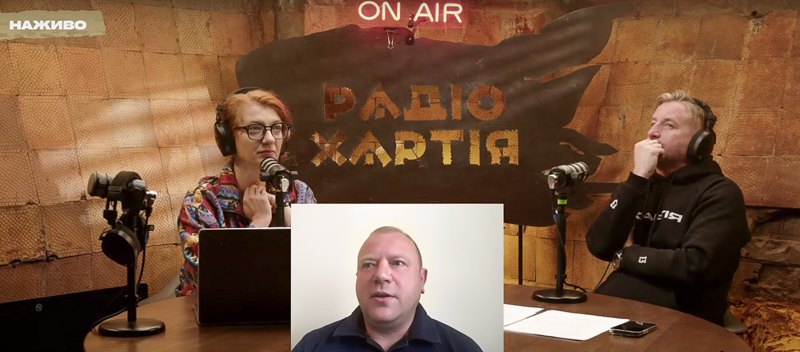
To a large extent, the opponents of the Liberals also have support, they also have their own base and they also obviously have some demands from their voters. How does this threaten Canadian politics both internally and externally?
At the moment, it seems that we do not know the final distribution of votes, but we are likely to have another minority government. This means that the Liberal government will have to look for votes for important votes. Minority governments in Canada usually don't last long, one and a half to two years. And they are a little bit limited in their work. But, on the other hand, the previous Trudeau government was a minority government, and it lasted for four full years.
What is important to us? It is important for us that Canada is a stable, firm ally for us. The political turbulence within Canada means that they have less ability to engage in foreign policy and help us.
Let me remind you that Canada is currently holding the G7 presidency. In recent months, the G7 presidency has been virtually paralysed and unable to prove itself as a leader of the G7. It is in our interest to have a stable and clear political landscape there - we need such an ally.
But there are still unresolved issues in society. There was fatigue from the Trudeau government, from the Liberals, from Liberal rhetoric, and I think all of this will continue to show itself.
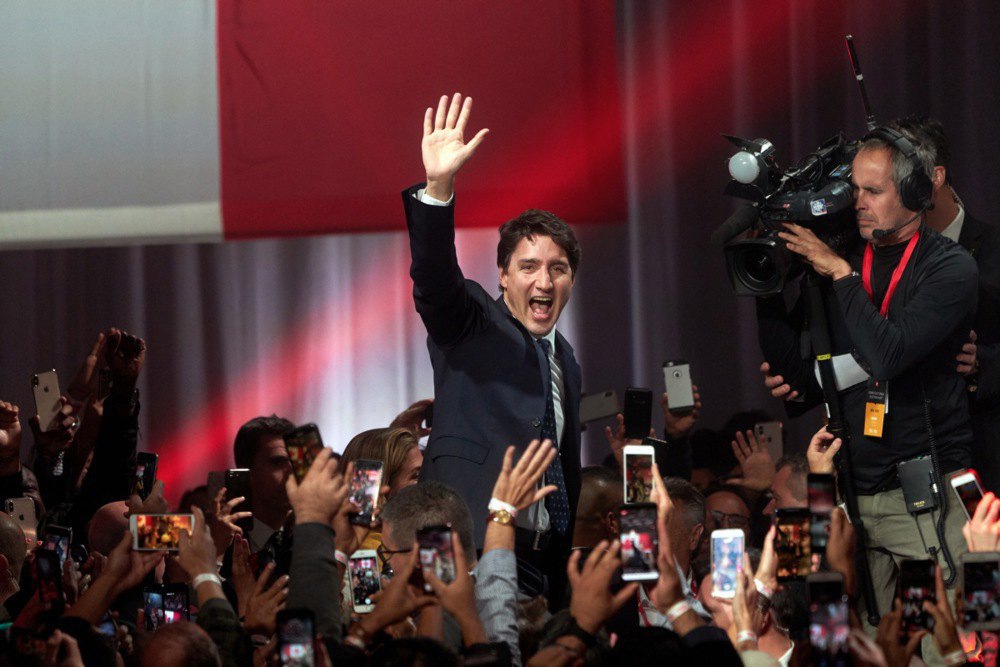
This is a Hollywood story. We'll remember Trudeau's socks, and selfies with him, and his smile, and his easygoing style. He was, of course, a manifestation of a new policy and a non-standard, non-classical political approach. But let's look at it another way. His father was Prime Minister of Canada three times, three terms. Justin Trudeau was Prime Minister of Canada for three terms. He grew up in the house he would later live in as prime minister. So, in fact, this is a powerful, strong political family. Now, for this reason, they are looking at Justin's children. He has three of them. When he handed over his powers as party leader in his farewell speech, he was represented at the meeting by his daughter, who was also being looked at.
In short, it's an interesting, colourful, political Hollywood story that definitely made us look at politics and politicians differently. For us, Trudeau was a supportive prime minister, he visited Ukraine, he supported us, and important decisions were made under his watch.
‘Multiple citizenship is not an obstacle for people to engage in politics and do their job well’
Serhiy: Then I'll cling to your definition of ‘new politics,’ Trudeau's politics as a manifestation of new politics. Don't you think that today, in general, there is a struggle between old and new politics? There are conventional formats of the old politics, professed, for example, by Russia, China, Turkey, and there are attempts to move the world forward. But it turns out that the world is not ready to just move on, there are many factors and many citizens who cling to the past.
In many ways, this is probably true. But it probably works more complicated. Obviously, there is a lot of fatigue with the old politics around the world, but what does it translate into?
Trump's victory is also like a punch in the pocket of the old politics, but it gives a result that makes you grab your head.
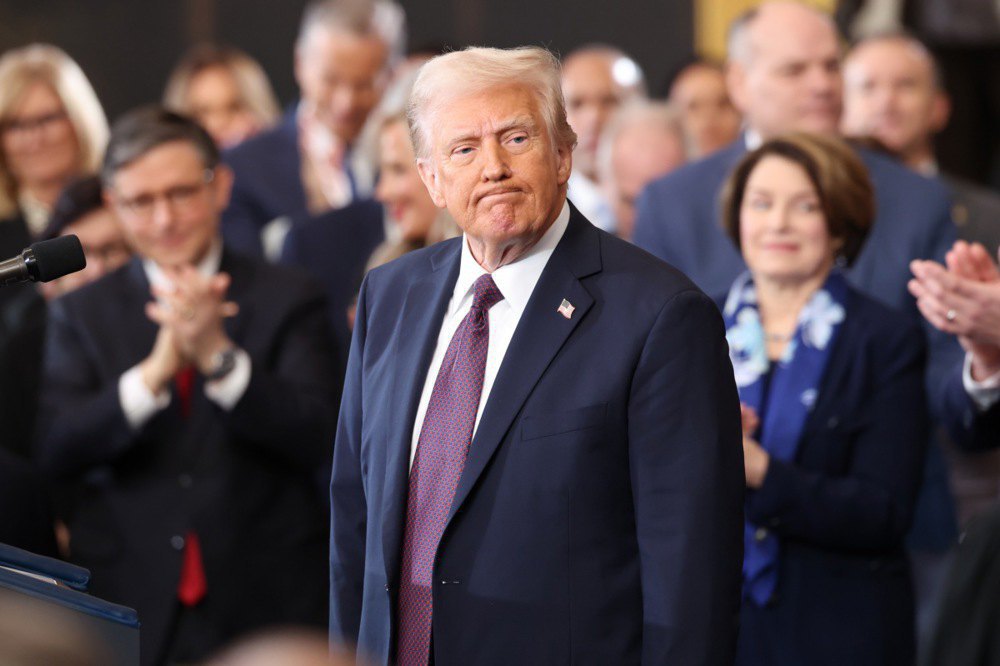
By the way, his fate is an interesting clue for Ukrainians. We have a discussion about multiple citizenship, and there is a high probability that we will finally see steps in this direction in the coming months.
I am a big supporter of multiple citizenship. And I think this is a clue that multiple citizenship is not an obstacle for people to engage in politics and do their job well.
Olena: Why do you think multiple citizenship is a good thing?
This is our chance to preserve Ukrainian citizenship for millions of Ukrainians who were forced abroad by the war. And this is a decision that will have ripple effects for decades to come. This decision will work for the children of those people who left, and for their grandchildren, because this is the way citizenship is passed on in Ukraine. Therefore, if we want to be a successful state in the 21st century, to keep in touch with these millions of Ukrainians, we need to move towards multiple citizenship.
Serhiy: On the one hand, Canada has the Conservative Party, and it would seem that in the face of the threat from America, from President Trump, voters would expect to rely on the conservative model. And yet Canadians are electing a candidate who has never been in politics. To a large extent, this is the election of a person who can be defined as a newcomer, as a person outside the system. What is behind this? Is it a certain amount of adventurism - or is it pragmatism, which means that it is better to hire someone from outside the system, who has no false political background?
To use your vocabulary, it's a kind of adventurous pragmatism. It has both.
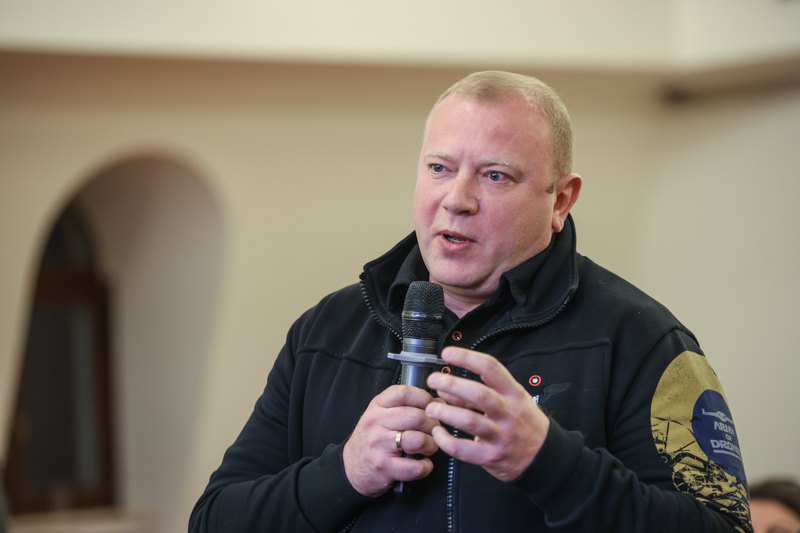
First, fate played a cruel joke on the Conservatives because they tried to imitate Trump. Pierre Poilievre, the leader of the Conservatives, positioned himself as a kind of Canadian softer version of Trump. He had a tough stance on emigration and other issues. But Trump, with his statements and his attacks on Canada, put the Conservatives in a situation where it was not just unfashionable to be like Trump, but politically toxic. And the conservatives had to make a sharp turn and position themselves as not being like Trump at all.
Second point. Mark Carney is indeed new to politics, but he is not new to power. He was the head of the Central Bank of Canada, and the head of the Central Bank of London. What does it mean to run central banks in two G7 countries with giant economies? Obviously, he has a lot of experience. I think it also worked, people thought that maybe a banker who understands the world, who knows how to manage large economies, is exactly what we need now in the difficult negotiations with Trump.
I must say that the Ukrainian factor also worked here, and it was a loud one in this political campaign.
‘Ukrainians in Canada are not just a factor in politics, they are a factor in life’
Serhiy: So the Liberals who ran for office declared their support for Ukraine?
All of them did. It was a competition to see who would support Ukraine the most. Ukrainians in Canada are not just a factor in politics, they are a factor in life. Wherever you go in Canada, you see Ukrainians or hear about Ukraine. For several elections in a row, the Ukrainian Canadian Congress has been sending a serious questionnaire to all the leading parties, forcing the key parties to announce how they are going to act and vote on issues important to Ukrainians before the election. This time, too, a questionnaire was sent to the leading parties, and they had to compete to find the best words for these Ukrainians.
In Canadian politics, we very rarely see a one-gate victory. As a rule, it's a race to the last for some critical 1200 votes in each constituency. That's why every vote is important, the votes of the Ukrainian community are important.
I think this is also an interesting clue for us. In the future, this may be the case in many other countries where Ukrainians will be an electoral factor. Quantitatively, but also politically, because they are visible and audible.
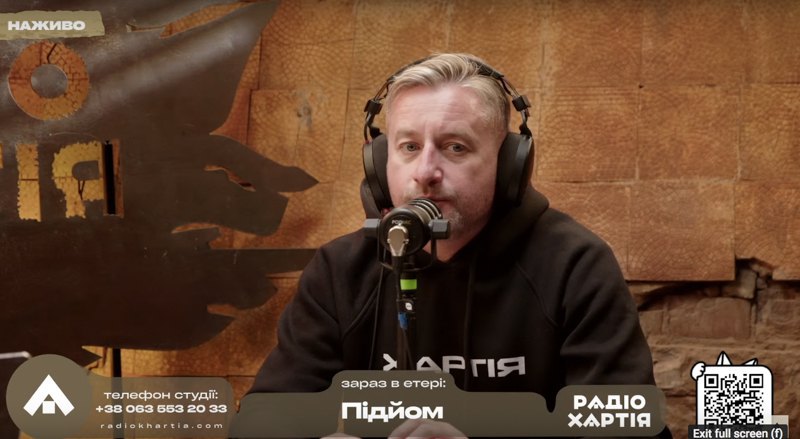
Serhiy: Speaking of the activities of the Ukrainian World Congress, does this Ukrainian trump card, the Ukrainian argument, work in the United States?
Yes and no. We probably cannot be satisfied with the results that we have and the position that the Trump administration is taking. But, on the other hand, there is also enormous pressure, and there are successful examples of lobbying. For example, last year's decision to restore aid to Ukraine, which was so difficult to get through Congress, is largely due to the powerful pressure of Ukrainian communities. There is a giant coalition of Ukrainian organisations that brings together more than 100 Ukrainian organisations from all over the US, and there is the Ukrainian Congressional Committee of America, an older organisation that has been building relationships for decades. And has anyone in the world found a solution to how to put pressure on Trump and how to advocate for certain issues in a conversation with him? We are looking for it.
Serhiy: Now there is disappointment on the part of Ukrainians about Trump's statements and actions, and fears, but it should be remembered that many Ukrainians who are citizens of the United States and have the right to choose voted for Trump, supported him.
This is true. And I think these voters have had a lot to think about in recent months. But the diaspora is consolidated in a fairly tough stance against the Trump administration. No one is coddling, no one is pretending that this is a miracle. There is a willingness to call a spade a spade and a spade a spade.
‘For the first time in the life of the Ukrainian nation, we are in a situation where there are as many people outside the Ukrainian lands as there are inside, maybe even more, compared to those who are inside Ukraine.’
Serhiy: What you are saying is very important in the context of the rhetoric of public attitudes towards Ukrainians who are outside Ukraine today. Russian propaganda narratives or local political forces are creating a negative attitude towards all Ukrainians who are not in Ukraine today. But our fellow citizens are all over the world. And here we are faced with the choice of whether to delegate some powers and requests to them, or simply refuse them. You say that the diaspora can be an important factor in the Ukrainian presence in the world. How can we talk about this better to make it work for the benefit of the state?
When President Zelenskyy was sworn in at his inauguration, he said: ‘There are 65 million of us’. And then how was this maths formulated? 45 million in Ukraine, 20 million outside Ukraine. If today there are 30 million citizens living in the territory controlled by the Ukrainian government, and about 3-4 million in the temporarily occupied territories, this means that there are about 30 million more people with Ukrainian blood somewhere else. For the first time in the life of the Ukrainian nation, we are in a situation where there are proportionally more people outside the Ukrainian lands, maybe even more, compared to those who are in Ukraine. This is the first time in our history, because we were with the state and without the state, we were divided, but we lived on our own land.
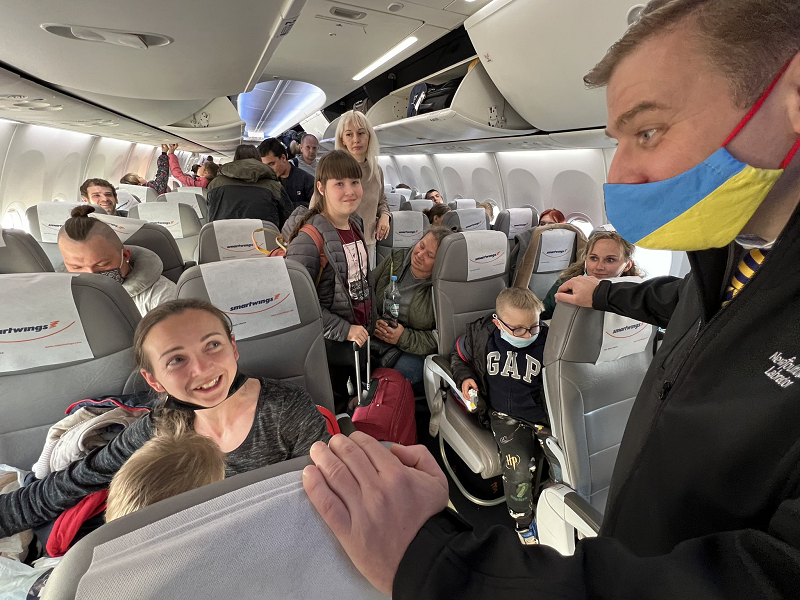
This now puts us on a par with such nations as the Irish, Armenians, and Jews, and it presents new challenges, but also new opportunities. We are a global powerful nation. We need to position ourselves in this way. And our factor will be important both as an electoral and political factor, as a factor of example. To do this, we need to keep in touch with Ukrainians abroad. So far, we are not very good at this, to be honest. We need to find out what people abroad can do now to help us win. Let's remind them that, of course, we have a huge number of people who have left, and we can look at different fates in different ways, but there are people who have returned and are returning, who have returned to Ukraine, who have taken up arms and are fighting. There are people who grew up in the diaspora and have never been to Ukraine, but now they have come to Ukraine, taken up arms and are defending our freedom. There are people who transfer millions for the Ukrainian victory. In short, we need to look for allies and support there.
Serhiy: Indeed, we saw this in Kharkiv, as soon as we pushed the Russians out of Kharkiv in the spring and summer of ‘22, many Kharkiv residents started to return.
Coming back to the Canadian election and the attitude of Canadians towards America. Don't you think that this choice of Canadians can start a trend of anti-Trumpism, become a sobering, cold shower of voters who suddenly realised the danger of populism and are showing resistance to it? Could Canada be the country that first sets this trend, or is it more of a coincidence and should not be considered a trend yet?
Trump has definitely been a cold shower for Canadians. If we want to see lessons in this for other countries, for other nations, I'm afraid that we will not change human nature here. People tend to look for their own rake and do their own thing with it. But if you have friends in Canada, you can call them and tell them that we have been following the elections, we know that you are entering a period of at least relative political clarity, and we expect that Canada will support us in a qualitative way, strongly. Canada is not a country of powerful armed forces and a large number of weapons. I know that when we received six Leopard tanks, it sometimes caused sceptical smiles in Ukraine, but perhaps these six Leopards are all that Canada has in terms of tank capabilities.
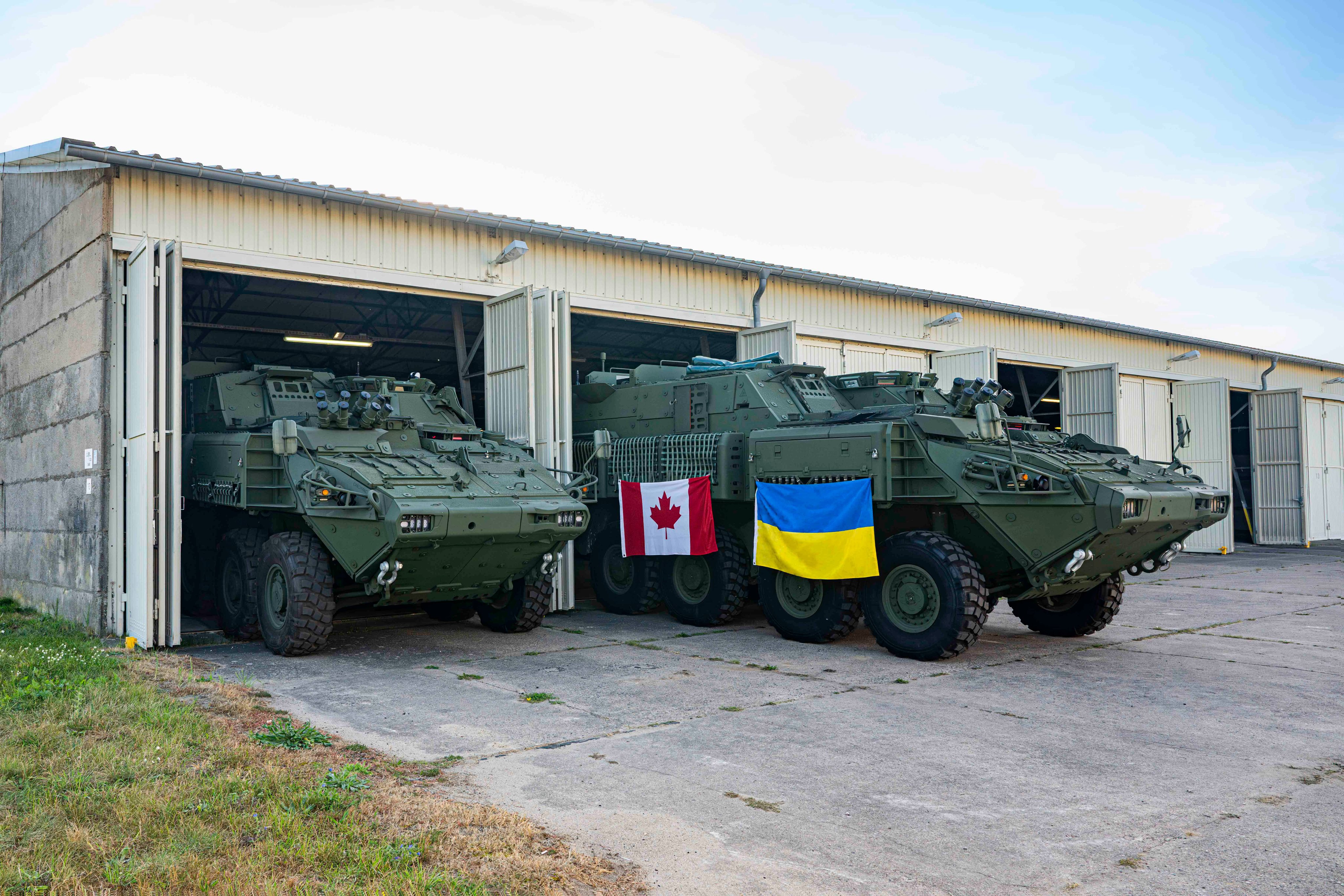
This is our loyal ally, a country that has been training our soldiers since 2015, had its own instructors here, and has been helping us financially. In terms of per capita, it is perhaps one of our biggest allies, which is buying the NASAMS air defence system (Norwegian Medium-Range Air Defence Missile System - Ed.) for 406 million euros from America, because we cannot buy it ourselves. And this is a country that is a great example for other countries. When they freeze Russian assets, it is an example for others. When they impose sanctions that are new for Russians, they set an example for others. This is the kind of Canada we need, and hopefully we will see it in the future.
